Insomnia and Homeopathy
Homeopathic treatment is different for each individual based on their body conditions, current medications, and more. Every individual is analysed completely before being given a homeopathic treatment since there is no specific medicine as such. So it is advised not to try any of the following without doing a thorough check up with a homeopathic doctor as the following is only information based on general symptoms of insomnia and should not be used for self-medications.
Coffee Cruda:
 This remedy prepared from coffee beans is suitable for patients who are hypersensitive. These patients are found to be very restless and have nervous sleeplessness. They lie in bed with their eyes wide open and if they happen to fall asleep, they wake up to every sound or are disturbed by dreams. For patients who face sleeplessness due to emotions like fear, depression, surprise, etc., this may help.
This remedy prepared from coffee beans is suitable for patients who are hypersensitive. These patients are found to be very restless and have nervous sleeplessness. They lie in bed with their eyes wide open and if they happen to fall asleep, they wake up to every sound or are disturbed by dreams. For patients who face sleeplessness due to emotions like fear, depression, surprise, etc., this may help.
Nux Vomica:
For patients who suffer from insomnia caused by stress, Nux Vomica, a drug prepared by potentizing seeds from a plant called “poison nut”, would be suitable. It has an effect on various organs & systems in the body like the nervous system, digestive system, respiratory organs, reproductive organs, etc.
Pulsatilla:
Pulsatilla is a homeopathic drug derived from the wind flower or weather-cock, a plant, given to the fact that it can be used as a remedy for various acute or chronic conditions. This drug benefits patients who are sleepless because of their mind filled with thoughts and who sleep in the early hours of morning which causes them to feel drowsy through the day. These patients are generally in a state of confusion and they talk, whine and scream in their sleep.
 Sulphur:
Sulphur:
This is commonly prescribed homeopathic remedy for insomnia which has an influence on the skin, digestive, nervous & urinary systems, respiratory and reproductive organs. People, who wake up during the early hours of the morning or sleep for a few hours, wake up and then sleep again and sometimes even wake up and eat at night may gain from this remedy.
These kinds of patients sleep on their left and are affected with nightmares when they lie on their back. They may have happy dreams, laugh in their sleep and wake up singing merrily in the morning.
Phosphorus:
Phosphorus is a homeopathic remedy used for various diseases. Phosphorus has an impact on the blood, bones, kidney, lungs, gastrointestinal tract, etc. Patients who cannot sleep continuously and are able to only take short naps, waking up every now and then are the ones who may use phosphorus for homeopathic treatment. These patients are often known to talk in their sleep and find difficulty sleeping on their left.
 Passiflora Incarnata:
Passiflora Incarnata:
For insomnia caused in children and the old and for sleeplessness in individuals with mental stress and worries, Passiflora Incarnata, a homeopathic drug extracted from passion flower leaves can be used as a remedy. This drug calms down the nervous system resulting in good sleep.
Kali Phosphoricum:
Kali Phosphoricum is a homeopathic drug is made from potassium phosphate which is a remedy that may be used by those patients who are affected with insomnia due to business worries, overwork and stress. The patient may yawn but not be able to sleep.

 Subscribe Now
Subscribe Now

 It is alright to have a cup of coffee in the morning but not after noon. The half-life cycle of coffee is about 5 hours and the system needs to clear the caffeine before bedtime. So to give it enough time, do not have coffee after noon. Otherwise, your sleep would be disrupted with the increase in urination during the night.
It is alright to have a cup of coffee in the morning but not after noon. The half-life cycle of coffee is about 5 hours and the system needs to clear the caffeine before bedtime. So to give it enough time, do not have coffee after noon. Otherwise, your sleep would be disrupted with the increase in urination during the night. Single? Then, this is not for you!
Single? Then, this is not for you!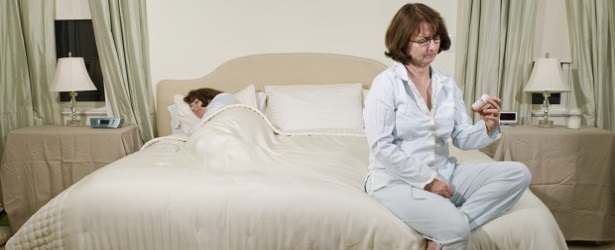
 After you have tried behavioural changes in your normal routine and various other treatments apart from medicines for insomnia and still find that the results are still not satisfying and if your day-to-day activities are still being affected due to lack of sleep, then you may try sleeping aids.
After you have tried behavioural changes in your normal routine and various other treatments apart from medicines for insomnia and still find that the results are still not satisfying and if your day-to-day activities are still being affected due to lack of sleep, then you may try sleeping aids. Consult your doctor for issues regarding sleeplessness. Based on your age, body sensitivity, condition and several other health issues, your doctor will prescribe the most suitable sleeping aids for you.
Consult your doctor for issues regarding sleeplessness. Based on your age, body sensitivity, condition and several other health issues, your doctor will prescribe the most suitable sleeping aids for you.
 There are no specific tests as such for insomnia. Instead doctors analyse your condition through filling forms and questionnaires, asking oral questions, studying your sleep pattern overnight and doing few blood tests. Based on these results, your doctor understands the cause for your sleeplessness and suggests a suitable treatment plan, since each patient has unique symptoms.
There are no specific tests as such for insomnia. Instead doctors analyse your condition through filling forms and questionnaires, asking oral questions, studying your sleep pattern overnight and doing few blood tests. Based on these results, your doctor understands the cause for your sleeplessness and suggests a suitable treatment plan, since each patient has unique symptoms.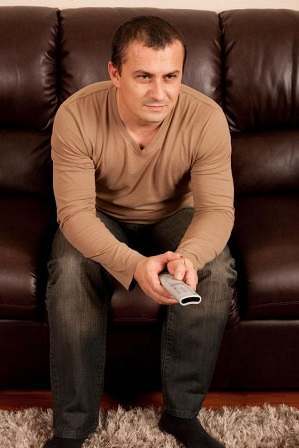 What is your difficulty in sleeping, precisely whether it is difficult to fall asleep or you frequently wake up and are unable to go back to sleep or if it is difficult staying asleep? How often does this happen in a week?
What is your difficulty in sleeping, precisely whether it is difficult to fall asleep or you frequently wake up and are unable to go back to sleep or if it is difficult staying asleep? How often does this happen in a week?
 When they are forced to bed, they have no problems falling asleep
When they are forced to bed, they have no problems falling asleep Tests are generally not required to identify child
Tests are generally not required to identify child 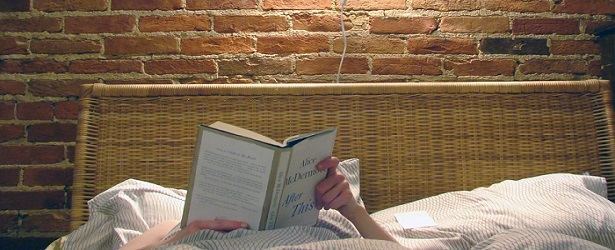
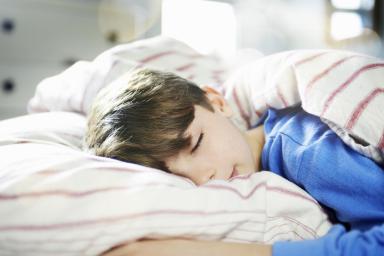 The beginning stage of sleep is when we just drifting off and experience something similar to day dreaming is when we go through alpha waves and theta waves. These waves vary with people. Some may experience more of these than others, i.e., a state in which some people may experience even through the entire day. People who engage in deep prayers or meditation often experience the resting phase, Alpha. During this phase, people often feel like they are free-falling after which sudden contractions of muscles can be felt. You may also hear noises like the phone or alarm ringing. These are called hypnogogic hallucinations. Following this, we enter the Theta phase which lasts for 5-10 minutes and is a thin line between being asleep and awake. Research shows that it takes 7 minutes for a normal sleeper to fall asleep. This may vary with person.
The beginning stage of sleep is when we just drifting off and experience something similar to day dreaming is when we go through alpha waves and theta waves. These waves vary with people. Some may experience more of these than others, i.e., a state in which some people may experience even through the entire day. People who engage in deep prayers or meditation often experience the resting phase, Alpha. During this phase, people often feel like they are free-falling after which sudden contractions of muscles can be felt. You may also hear noises like the phone or alarm ringing. These are called hypnogogic hallucinations. Following this, we enter the Theta phase which lasts for 5-10 minutes and is a thin line between being asleep and awake. Research shows that it takes 7 minutes for a normal sleeper to fall asleep. This may vary with person.
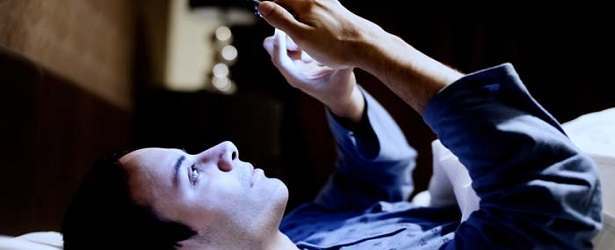
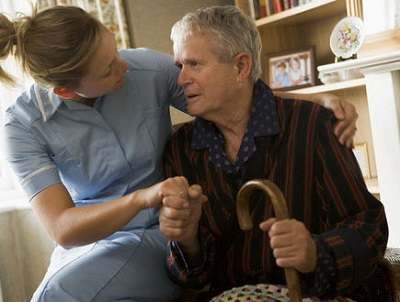 Sleep may be disrupted due to certain mild or serious medical conditions or symptoms of certain conditions. Some of the health disorders that lead to insomnia are nasal allergies, gastrointestinal issues, hyperthyroidism, arthritis, asthma, Parkinson’s disease, chronic pains and lower back pains. Medications are taken for insomnia caused by these disorders.
Sleep may be disrupted due to certain mild or serious medical conditions or symptoms of certain conditions. Some of the health disorders that lead to insomnia are nasal allergies, gastrointestinal issues, hyperthyroidism, arthritis, asthma, Parkinson’s disease, chronic pains and lower back pains. Medications are taken for insomnia caused by these disorders.
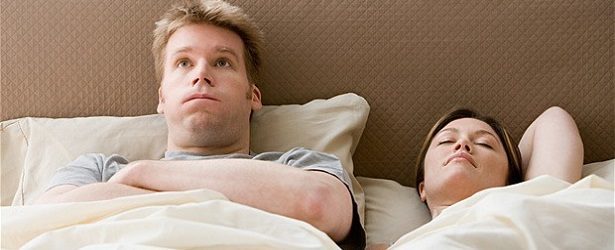
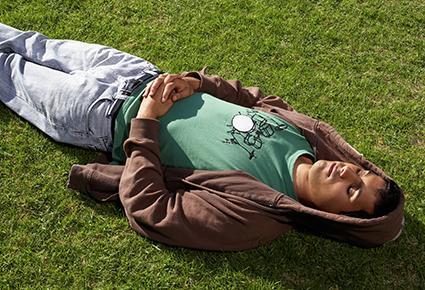 Progressive Muscle Relaxation (PMR)
Progressive Muscle Relaxation (PMR) Imagine
Imagine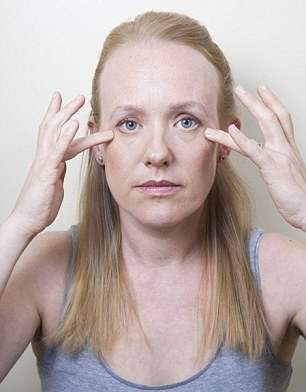 Practice a trick
Practice a trick
 Many of you may have experienced falling asleep right after the heavy turkey that was served during lunch for thanksgiving! The reason is not because of the overload in your stomach but because of the turkey which is rich in tryptophan.
Many of you may have experienced falling asleep right after the heavy turkey that was served during lunch for thanksgiving! The reason is not because of the overload in your stomach but because of the turkey which is rich in tryptophan. Thus, consuming foods that contain tryptophan alone will not suffice. It needs to be consumed along with a rich source of carbohydrates in order to put this natural remedy to work! Now that we know the kind of food that we should eat to trigger sleep, it is equally important to know what we ought not to eat before going to sleep.
Thus, consuming foods that contain tryptophan alone will not suffice. It needs to be consumed along with a rich source of carbohydrates in order to put this natural remedy to work! Now that we know the kind of food that we should eat to trigger sleep, it is equally important to know what we ought not to eat before going to sleep.
 People experience different kinds of Insomnia. Some find it difficult to fall asleep, others have difficulties in sleeping at a stretch through the night and yet others wake up during early hours of morning or maybe even during the night and find it difficult to go back to sleep. Poor sleep through the night could affect the whole day keeping one feeling dizzy and tired through the entire day causing a feeling of restlessness which disturbs the day’s work. All this leads to frustration and irritability which finally ends up in
People experience different kinds of Insomnia. Some find it difficult to fall asleep, others have difficulties in sleeping at a stretch through the night and yet others wake up during early hours of morning or maybe even during the night and find it difficult to go back to sleep. Poor sleep through the night could affect the whole day keeping one feeling dizzy and tired through the entire day causing a feeling of restlessness which disturbs the day’s work. All this leads to frustration and irritability which finally ends up in  Though, Insomnia could be acquired by anybody, certain groups of people are at a higher risk, like, those working at late night shifts, those with a history of any kind of mental disorder, those with high emotional stress and those who are above the age of 60. However, Insomnia can be prevented by sleeping and waking up at the same time every day to make it a habit and by avoiding caffeine. It is also important not to exercise just before sleeping which arouses the body rather than giving it a calm environment to sleep. Though treatments are available for to recover from this condition, many people use sleeping tablets and sedatives to get rid of the condition as a short-term use. However, it is important to first identify the cause for insomnia and the treatment for these causes need to be addressed instead of taking sleeping pills which will have a long-term effect of the body.
Though, Insomnia could be acquired by anybody, certain groups of people are at a higher risk, like, those working at late night shifts, those with a history of any kind of mental disorder, those with high emotional stress and those who are above the age of 60. However, Insomnia can be prevented by sleeping and waking up at the same time every day to make it a habit and by avoiding caffeine. It is also important not to exercise just before sleeping which arouses the body rather than giving it a calm environment to sleep. Though treatments are available for to recover from this condition, many people use sleeping tablets and sedatives to get rid of the condition as a short-term use. However, it is important to first identify the cause for insomnia and the treatment for these causes need to be addressed instead of taking sleeping pills which will have a long-term effect of the body.